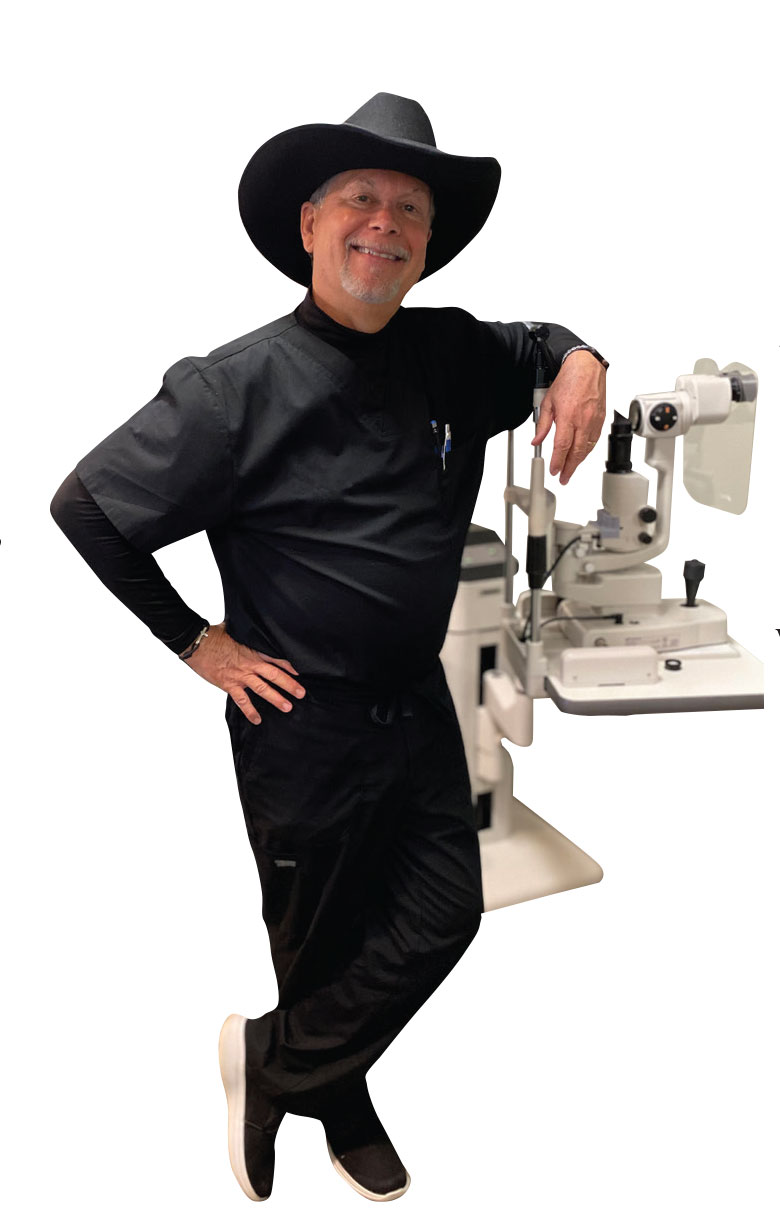 |
My hobby over the past 43 years has been trying to figure out which is better: number one or two. Somebody needs to know, because so many patients have no idea. But, my profession is songwriting. Yes, I have an album on iTunes. It’s been there since around 2008. It has not gone platinum, but I did sell four copies that I know of, so I’m on my way, thanks to my mom, kids and some dude from Milwaukee.
One of my songs—not on the album—is titled, “What’s Your Policy?” This song has absolutely nothing to do with optometry, but in optometric practice, we spend a lot of time working on our policies, don’t we? In fact, we may spend more time developing policies than on any single other part of our day when we are not griping on Facebook or X (what used to be known as Twitter).
A patient no-shows. What’s your policy? Mine is to reschedule them on days we are closed.
A patient wants to “borrow” a couple pairs of contact lenses to hold him over until his next exam. What’s your policy? I don’t know… has he been seen within the past six years?
 |
A staff member wants to take off every other Wednesday afternoon. What’s your policy? If they’re not gushing blood from their ears every other Wednesday afternoon, why?
It goes on and on. The problem with policies is this: As soon as you make what you think is a good policy, a better reason to change it suddenly appears. New policy? New reason it needs to change.
But, policies can help everyone in the office stay on the same page, in total agreement. In total agreement that you, the policymaker, are as dumb as stone.
So, we decide that the staff members should have a voice and your policy is that you will back them up when they have to, on the fly, adjust and amend some policy you gave them so the staffer can appear to be nice and fair, and give your time and materials away rather than explain to the patient what the “real” policy is, such as, “patients have to pay for stuff in this office.”
Often, policies start to harden into impenetrable walls. My wife, Renee, who ran my office for over 38 years, finally convinced me that if something happens with a patient but is not written on their chart, it means that it did not happen after all. What if nobody bothers to scribble into the EHR the contact lenses we dispensed… you know, the ones they love, love, love, or perhaps the ones they hate, hate, hate?
Well, this means no matter what the doctor and patient may remember, that no contact lenses were dispensed at all. Don’t believe me? Ask your lawyer. The patient could state that you dispensed two shiny new pennies for him to wear and that’s why he’s suing you for that big ol’ central corneal scar. Prove you didn’t.
So, I became very serious about putting every little thing on the chart.
Now, I do not own an optometric practice anymore. I am a mere junior associate, so what do I know, anyway?
But, shouldn’t the policy be that the patient’s final contact lens Rx is found on the their chart? Why should I have to rifle through digital “invoices” to see what contact lenses this gal is wearing when she comes in for her next appointment?
How about a policy that when you dispense something to a patient, such as sample drops or a trial contact lens, it states this was done on the chart?
Why not? Because that’s never been the policy.
What’s your policy? It shouldn’t just be a song.
Dr. Vickers received his optometry degree from the Pennsylvania College of Optometry in 1979 and was clinical director at Vision Associates in St. Albans, WV, for 36 years. He is now in private practice in Dallas, where he continues to practice full-scope optometry. He has no financial interests to disclose.

